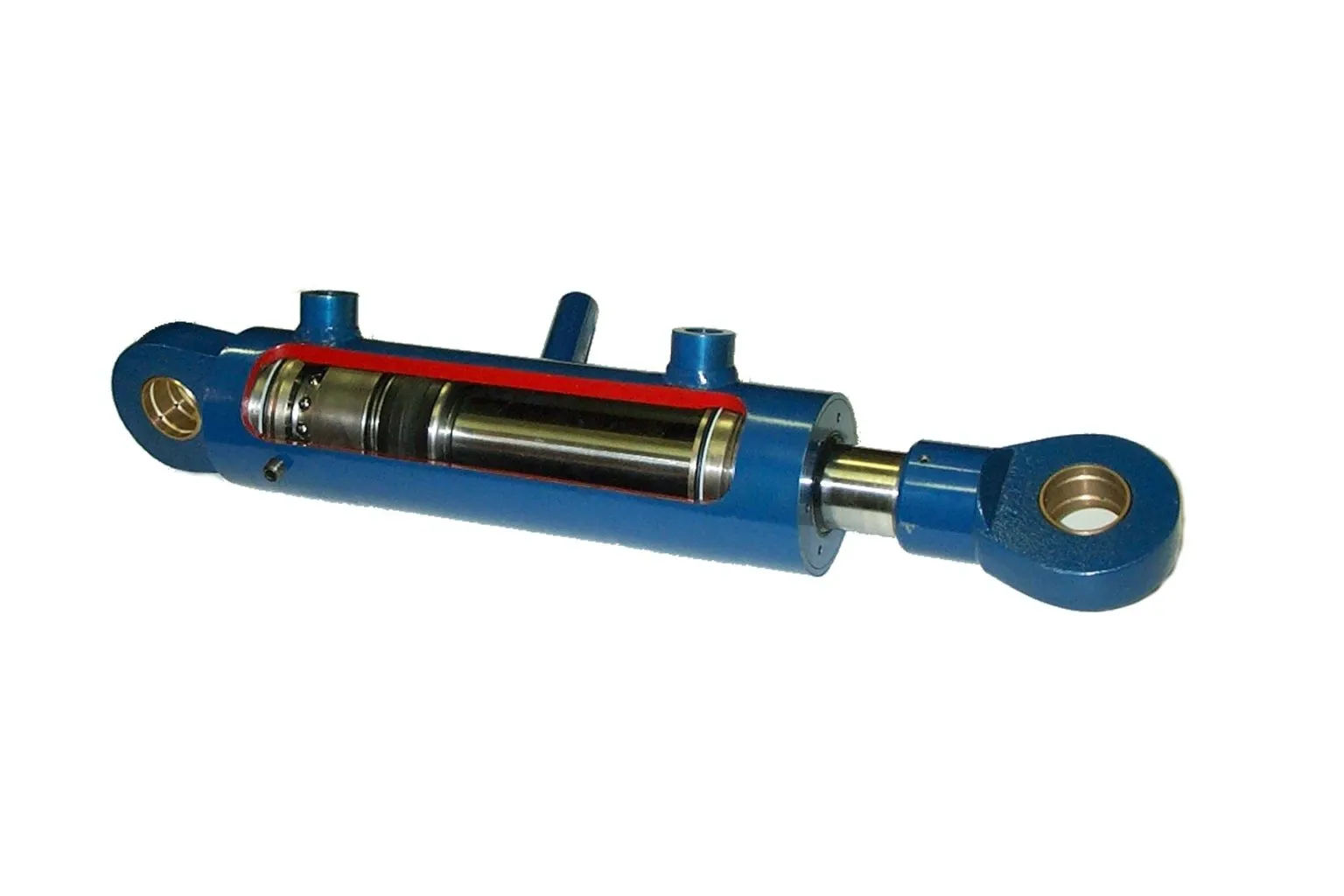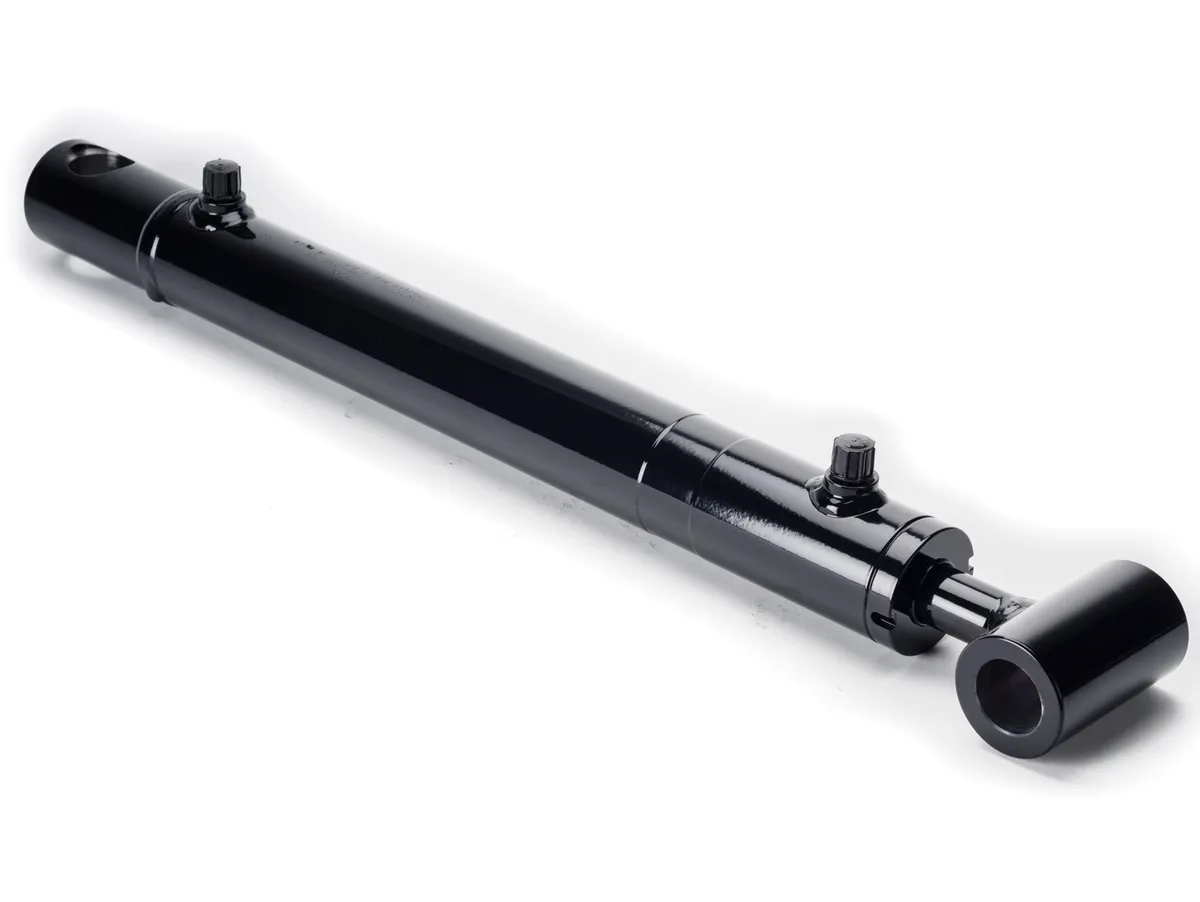Exploring the World of Industrial Hydraulic Cylinders
Understanding the Key Components of Hydraulic Cylinders
Industrial hydraulic cylinders play a crucial role in various industrial applications, providing the necessary power for machinery and equipment to function efficiently. The term “hydraulic cylinder” refers to a mechanical actuator that converts hydraulic energy into linear motion and force. It consists of several key components, including:
- Cylinder Barrel
- Piston
- Rod
- Seals
- Ports

Operating Principle of Hydraulic Cylinders
Hydraulic cylinders operate based on the principle of Pascal’s Law, which states that when pressure is applied to a confined fluid, it transmits that pressure equally in all directions. This principle allows hydraulic cylinders to generate force and movement by harnessing the power of pressurized fluid.
Types of Hydraulic Cylinders in Industrial Applications
There are several types of hydraulic cylinders commonly used in industrial settings, each with unique characteristics and applications:
Single Acting Cylinder
A single acting cylinder uses hydraulic pressure to extend the piston in one direction, while relying on an external force (such as a spring) to retract it. These cylinders are often used in applications where the load is predominantly in one direction.
Double Acting Cylinder
Double acting cylinders can extend and retract using hydraulic pressure in both directions, providing more versatility in industrial applications that require precise control over movement.
Telescopic Cylinder
Telescopic cylinders consist of multiple nested stages that enable a long stroke length in a compact design. These cylinders are commonly used in applications where space is limited.
Differential Cylinder
Differential cylinders have two pistons with different diameters, which allows for varying speeds of extension and retraction. They are ideal for applications that require different force outputs in each direction.
Benefits of Industrial Hydraulic Cylinders
The top five advantages of utilizing industrial hydraulic cylinders include:
- High Power Density
- Precision Control
- Reliability
- Compact Size
- Low Maintenance Requirements
Applications of Hydraulic Cylinders in Various Industries
Industrial hydraulic cylinders find widespread use in industries such as manufacturing, construction, mining, agriculture, and more. They are essential components in machinery and equipment that require precise force and motion control.
Manufacturing Industry
In manufacturing, hydraulic cylinders are used in assembly lines, robotic systems, and material handling equipment to automate processes and improve efficiency.
Construction Industry
Hydraulic cylinders are utilized in construction machinery such as cranes, excavators, and bulldozers to perform heavy lifting and earthmoving tasks with ease.
Mining Industry
In mining operations, hydraulic cylinders power equipment like drilling rigs, loaders, and crushers to extract valuable minerals from the earth efficiently.
Agricultural Industry
Agricultural machinery such as tractors, harvesters, and irrigation systems rely on hydraulic cylinders for tasks like plowing, harvesting, and watering crops.
Selecting the Right Industrial Hydraulic Cylinder
When choosing an industrial hydraulic cylinder for a specific application, factors such as load capacity, stroke length, bore size, and mounting options must be considered. Matching the performance of the cylinder to the requirements of the application is crucial for optimal efficiency.
Maintenance and Care of Hydraulic Cylinders
Regular maintenance of industrial hydraulic cylinders is essential to ensure longevity and optimal performance. Inspection, lubrication, and cleaning are key practices that help prevent breakdowns and extend the service life of the equipment.
Installation Guide for Hydraulic Cylinders
Proper installation of hydraulic cylinders involves following manufacturer guidelines, ensuring correct alignment, and securing all connections to prevent leaks and malfunctions. It is crucial to consult experts for installation in complex systems.
Maintenance Tasks for Hydraulic Cylinders
Common maintenance tasks for hydraulic cylinders include:
Cleaning
Regularly cleaning the cylinder and its components helps prevent contamination and ensures smooth operation.
Lubrication
Applying the appropriate lubricant to moving parts reduces friction and wear, extending the life of the cylinder.
Checking Wear
Periodically inspecting the cylinder for signs of wear and tear helps identify potential issues before they escalate into major problems.
Fault Diagnosis and Common Problems
Identifying and resolving common issues with hydraulic cylinders, such as leaks, malfunctions, and poor performance, requires a systematic approach. By diagnosing faults early and implementing solutions promptly, downtime can be minimized.
Preventive Measures for Optimal Performance
To prevent potential problems with industrial hydraulic cylinders, implementing preventive measures such as regular maintenance, monitoring performance, and addressing issues promptly can help optimize efficiency and extend the lifespan of the equipment.
Choosing the Right Industrial Hydraulic Cylinder
When selecting an industrial hydraulic cylinder, factors to consider include load requirements, operating conditions, space limitations, and budget constraints. It is essential to evaluate these factors carefully to ensure the chosen cylinder meets the specific needs of the application.
Long-Tail Keywords for SEO Optimization
Long-tail keywords related to industrial hydraulic cylinders can enhance search engine visibility and attract targeted traffic. By incorporating specific phrases like “high-performance hydraulic cylinders” or “customized industrial solutions,” SEO articles can target niche audiences effectively.
Our Company: Leading Hydraulic Cylinder Manufacturer
Our company specializes in the research, development, and production of high-quality industrial hydraulic cylinders. With a diverse product line, international certifications, customized services, state-of-the-art production equipment, and dedicated after-sales support, we have established ourselves as a trusted provider in the domestic and international markets.

